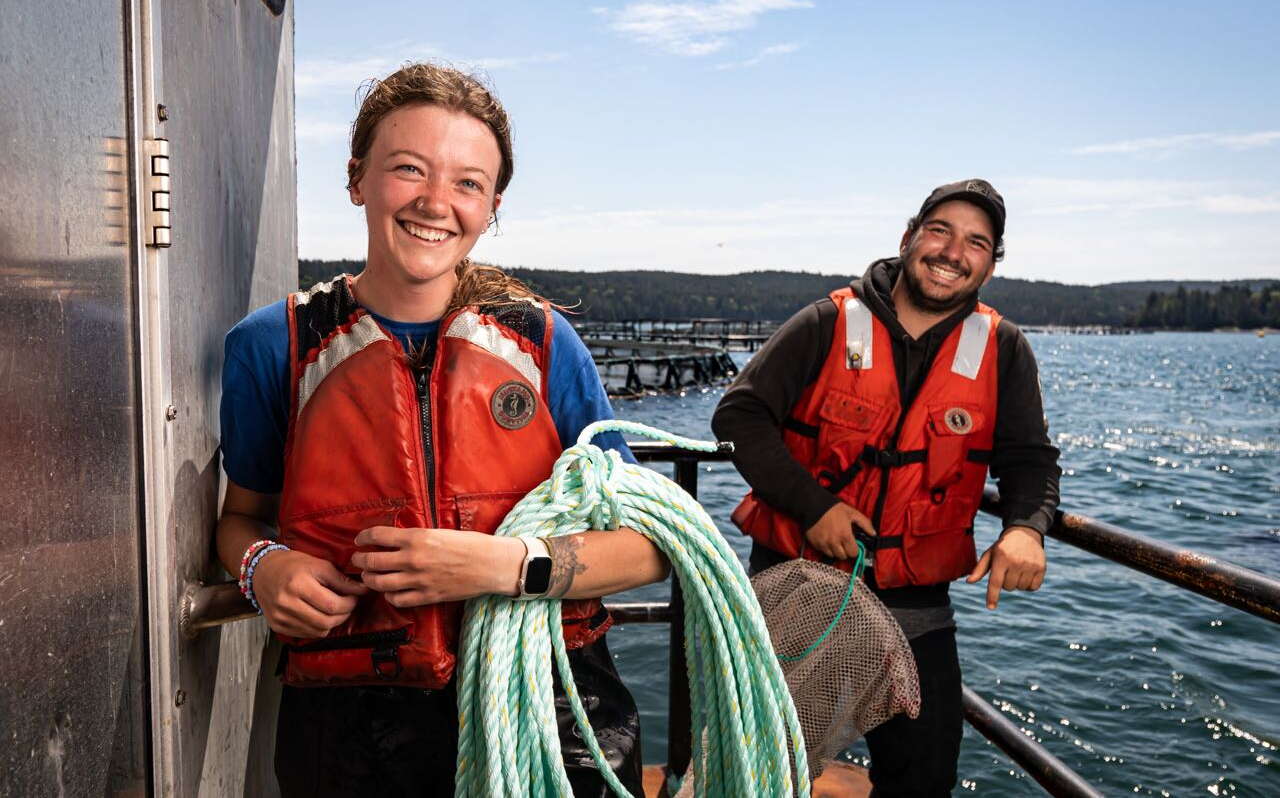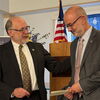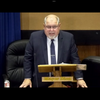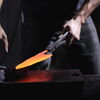
How Canada salmon farmer Cooke became one of Washington County’s largest employers
 Photo / Courtesy, Cooke Inc.
Fish health technicians Megan Robinson, foreground, and Jessica Lindsay weigh fish at a Machias Bay salmon farm.
Photo / Courtesy, Cooke Inc.
Fish health technicians Megan Robinson, foreground, and Jessica Lindsay weigh fish at a Machias Bay salmon farm.
Cooke Inc., an aquaculture company based in New Brunswick and led by CEO Glenn Cooke, has operated salmon farms and hatcheries in Maine as Cooke USA for two decades.
One of Washington County’s largest employers, Cooke supplies farmed Atlantic salmon throughout New England and the U.S.
“Cooke, and salmon aquaculture in general, is woven into the fabric of Washington County’s economy,” said Chris Gardner, executive director of the Eastport Port Authority and chairman of the Washington County Commission.
“Not only does the company provide direct employment to dozens of people in Eastport and throughout Washington County, but it also supports numerous other businesses that provide goods and services year-round, helping sustain the region’s ocean-based economy.”
Mainebiz asked Joel Richardson, Cooke Inc. vice president of public relations based in Saint John, New Brunswick, about the company’s evolution in Maine. Here’s an edited transcript.
Mainebiz: What was the status of Maine’s salmon farming industry 20 years ago?
Joel Richardson: Twenty years ago, Maine’s salmon-farming sector was at a crossroads. Several aquaculture companies were struggling to sustainably farm salmon and while some decided to leave the area, others were in financial difficulty and needed new management.

Cooke purchased the East Coast operations of some of our biggest competitors, including Atlantic Salmon of Maine, and the acquisitions became turnaround operations. With a strong group of professional fish health experts, freshwater hatchery technicians, saltwater fish farmers and administrative team, changes were implemented quickly to save hundreds of jobs in Washington County.
Founded in 1985, Cooke Inc. came in with 19 years of salmon-farming from neighboring New Brunswick, providing the knowledge and investment necessary in collaboration with government regulators and non-governmental organizations to evolve and modernize Maine’s salmon-farming sector.
MB: What did Cooke bring to the table?
JR: Salmon farming has been in practice in Maine since 1982. It was already a well-established sector in 2004. The sector was lacking stability and a path forward, and that’s what Cooke brought to the table.
MB: How has Cooke’s operation in Maine evolved since then?
JR: Today, Cooke USA has approximately 200 employees throughout the state and is one of Washington County’s largest employers. Cooke USA operates marine farms in Downeast Maine, a processing plant in Machiasport and three freshwater hatcheries, two in western Maine and one in eastern Maine. Additionally, Cooke USA purchases more than $10 million in goods and services from dozens of Maine-based businesses annually.
Our salmon farm sites are routinely audited and certified by third-party organizations, in addition to inspections by regulators.

MB: Are there new technologies or practices that have unfolded over the years, that have helped drive Cooke’s success?
JR: The salmon-farming sector globally is constantly evolving and modernizing. A key priority area for Cooke as a shared user of working waterfronts is to ensure that local lobster fishers and shellfish harvesters are not impacted by our aquaculture operations.
Salmon aquaculture works side-by-side with the lobster fishery and shellfish harvesters to preserve Maine’s heritage of vibrant working waterfronts. Lobster landings and shellfish are not negatively impacted by our salmon farm. They have co-existed for decades alongside the lobster and inshore fishery. The existing environmental compliance criteria at aquaculture farms allows for this. Lobster fishers can set gear within the salmon farm lease boundaries and some lobster fishers work at our farms during their off season.
In Maine, investments have been made in new technologies that are resulting in a more automated, more efficient production process. In the early days, fish were hand fed. Today, they’re fed from automated feeders, with underwater cameras to monitor feeding behavior which eliminates excess feed accumulating on the ocean floor. Nets are cleaned regularly with remote-controlled robotic cleaners, automating a process that was also once done by hand.
MB: How will Cooke’s Maine-based operations continue to unfold into the future?
JR: Cooke USA is continually improving its salmon-farming practices through investments in new technology and equipment and through taking care of its employees, who are the backbone of the company’s operations.










0 Comments